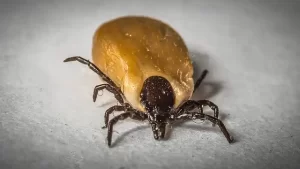This killer protein leads to pancreatic cancer
- Engineered Soybeans with Pig Protein: A Promising Alternative or Pandora’s Dish?
- Severe Fever with Thrombocytopenia Syndrome (SFTS): A Tick-Borne Threat with High Mortality
- Why Isolating Bananas Extends Their Shelf Life?
- This common vitamin benefits the brain and prevents cognitive decline
- New report reveals Nestlé adding sugar to infant formula sold in poor countries
- Did Cloud Seeding Unleash a Deluge in Dubai?
This killer protein leads to pancreatic cancer
- Red Yeast Rice Scare Grips Japan: Over 114 Hospitalized and 5 Deaths
- Long COVID Brain Fog: Blood-Brain Barrier Damage and Persistent Inflammation
- FDA has mandated a top-level black box warning for all marketed CAR-T therapies
- Can people with high blood pressure eat peanuts?
- What is the difference between dopamine and dobutamine?
- How long can the patient live after heart stent surgery?
This killer protein leads to pancreatic cancer.
Researchers from Cold Spring Harbor Laboratory have discovered that the protein SRSF1, which regulates RNA splicing, plays a key role in the development of pancreatic ductal adenocarcinoma (PDAC), a deadly form of pancreatic cancer.
Elevated levels of SRSF1 lead to inflammation and stimulate tumor growth, while restoring normal levels stops the disease from progressing. This discovery may pave the way for new diagnostic methods and treatments for PDAC.

Pancreatic ductal adenocarcinoma (PDAC) is the most common form of pancreatic cancer. It is also one of the deadliest cancers. More than 90% of PDAC patients die within five years of diagnosis. Usually, by the time cancer is discovered, it has already spread.
Adrian Krainer, a professor at Cold Spring Harbor Laboratory (CSHL), said: “PDAC is often detected too late, and treatments like chemotherapy and surgery will not be very effective. But if we can clearly understand PDAC underlying genetic mechanisms, which could lead to earlier diagnoses and new types of treatments.”
Krainer and CSHL postdoc Ledong Wan collaborated with CSHL Professor David Tuveson to explore the role of a genetic process called RNA splicing in pancreatic cancer. RNA splicing helps DNA deliver instructions to cells to make proteins.
The team zeroed in on a splicing regulator called SRSF1. They found that high levels of SRSF1 lead to inflammation, or pancreatitis. This initiates the development of PDAC tumors.

Normal healthy pancreatic cells maintain constant levels of SRSF1 (stained red), but in PDAC, these levels grow out of control.
Source: Krainer Laboratories/Cold Spring Harbor Laboratory
“Cells have several processes to keep SRSF1 levels constant,” Krainer said. “But cancer often finds a way to overcome these checks and balances.”
Several genes, RNA and proteins work together in cells to keep SRSF1 levels steady. But sometimes, the process gets disrupted. In the pancreas, this triggers pancreatitis and accelerates PDAC.
“It’s a very noticeable effect,” Krainer explained. “We could see that patients whose tumors expressed higher levels of SRSF1 had worse outcomes. So we set out to explore to what extent SRSF1 contributed to PDAC.”
The team found that higher levels of SRSF1 are critical for the growth of PDAC in mice and in organs — small tumors. Furthermore, when SRSF1 was restored to normal levels, the organelles stopped growing.
SRSF1 is important in healthy tissue, so it might not be an ideal drug target by itself. However, some of the splicing changes it promotes can be targeted. Krainer said there is still more work to be done.
“We’re excited about these advances. But PDAC is a difficult and complex malignancy. We hope to provide actionable information for future treatments. This work, spearheaded by Ledong, is just the tip of the iceberg,” he said.
Krainer and Wan’s collaboration with Tuveson’s lab is part of a broader effort to explore pancreas and breast cancer. The initiative also includes CSHL’s Professors David Spector and Christopher Vakoc.
Tuveson, Director of the CSHL Cancer Center, said: “The paradigm-shifting work of the Krainer lab has advanced our understanding of many types of cancer. Dr. Wan’s research has revealed an exciting new avenue for understanding pancreatic cancer. It again confirms the It highlights the importance of basic biological research to improve human health”.
This killer protein leads to pancreatic cancer
(source:internet, reference only)
Disclaimer of medicaltrend.org
Important Note: The information provided is for informational purposes only and should not be considered as medical advice.



